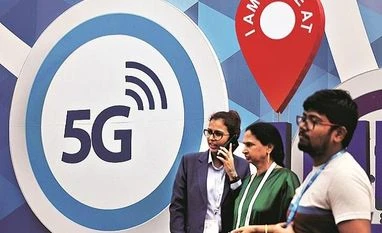Telecom operators have stated bluntly that the base price for the 3300-3670 MHz 5G band recommended by the Telecom Regulatory Authority of India (TRAI), which has slashed it by 36 per cent from Rs 492 crore per MHz in 2018 to Rs 317 crore per MHz, is not sufficient for them to run a viable 5G network.
Says a top executive of a leading telecom operator, “We believe that the base price should be one-third of that of the 2018 price for telcos to build a viable 5G business. What the regulator has done is reduce it by one-third, which does not make for a viable business. The regulator has gone only half the way. The rest has to be done by the government.”
The price cut recommended by the regulator is for a period of 20 years. Yet the 5G spectrum is now being offered for 30 years, for which the base price is marginally lower at Rs 476 crore per MHz than the price that TRAI had recommended in 2018.
Disappointed with the recommendations, The Cellular Operators Association of India (COAI) has said that in light of the recent reforms announced for the telecom sector, the regulator’s recommendations “are one step backwards than forward towards building a digitally connected India.”
The COAI added that despite the government’s decision to allocate 5G spectrum for a period of 30 years, TRAI has decided to recommend reserve prices for 20 years and applied a 1.5 times multiple to the price if spectrum is taken for 30 years.
“If one were to look at the pan-India price of 3.5 GHz spectrum, then we are back to square one with effectively no change and will nullify the relief provided by the Union cabinet in the year 2021. This defies logic,” the COAI said in a statement.
The association has demanded that the spectrum pricing recommendations be revisited as there is headroom to cut the price by 90 per cent and do away with the 1.5 times price multiple for 30 years. It has further demanded that the minimum rollout obligation should also be done away with, claiming that this is a retrograde step.
The COAI has said, moreover, that industry must be empowered to decide its rollout strategy after it has acquired spectrum and also demanded that private networks should be disallowed as it would impact the telcos’ financial viability.
COAI’s demand for a 90 per cent cut in the reserve price of 5G spectrum from the 2018 levels is based on the argument that it would bring the price closer to the global prices of 5G spectrum. But even with a 90 per cent reduction, it would still be at least 11.5 per cent higher than the price at which 5G spectrum was auctioned in the UK, 14 times that in Australia and 35 times that in Spain.
Telcos point out that TRAI has not changed the methodology for calculating the value of the spectrum and followed the same formula adopted in 2018. In other words, it has pegged the value of the spectrum at 30 per cent of that of 1800 MHz. The base price has been calculated on 70 per cent of the valuation. The base price of the 5G band has fallen also because the regulator has reduced the base price of 1800 MHz
The 30 per cent formula is based on data from Nokia on “5G Spectrum and Coverage Consideration Aspects.” As per coverage analysis by Nokia, the 3.5 GHz band coverage is around 70 per cent lower than the 1800 MHz band coverage. Taking the 1800 MHz band coverage as the reference, the 3300-3670 MHz band coverage has been estimated to be around 30 per cent of the 1800 MHz FDD coverage.










)

